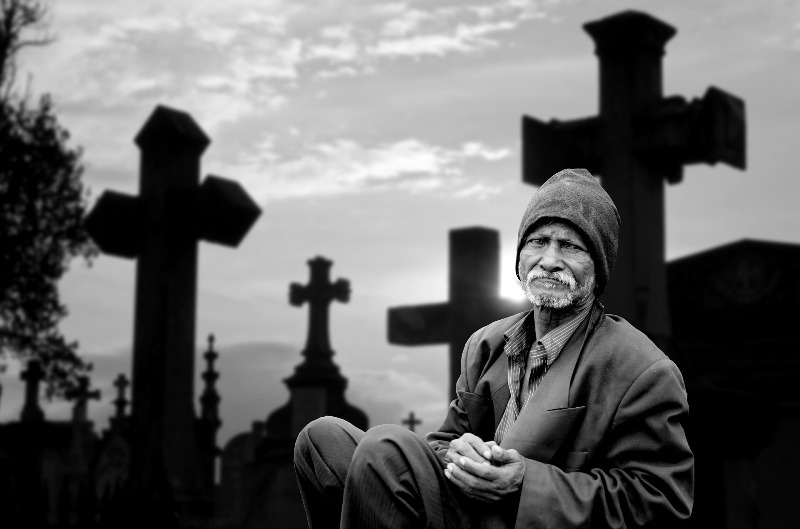
The sufferings of Christ are the core of our Christian faith. The symbol of the cross, an instrument of cruelty and death is our chief identification mark. However, at least in the Pentecostal circles in which I circulate, suffering has become a bit of a taboo topic. Gone are the days when the words suffer and permit were used interchangeably. Many Christians make no allowance for a God who makes allowance for pain and misery. Besides, embracing ordained suffering is not the type of topical sermon material that inspires the multitudes.
Like a speed bump on the road to happiness, suffering is now often treated as an annoyance and inconvenience placed in our path to be driven over. Yet, in truth and if Jesus is correct, suffering is the road itself. There remains no other path to glory. The true stations of the cross are not found in old churches or on pilgrimages but in our own life stories.
The Apostolic commission began with the touching of the wounds of Christ, not for healing, but so they may know how and for what the Father sent Jesus their master. He was sent to be wounded, and it is his wounds which served as the compass for His sent ones. His experience on the cross did not exempt them from the crosses awaiting themselves. They would follow afterward where they were unwilling to follow before. The fact that Jesus was risen certainly would have imparted courage where there was none previously. There is no point in a religion of suffering unless we have justifiable hope for resurrection.
Jesus was a man, and like all of us did not want to suffer and die alone. He who often retreated to pray alone all night to his Father, wasn’t too keen on being alone on the night of his betrayal and arrest. We all know the story how the Lord’s disciples fell asleep instead of watching and praying that night. Jesus admonished them for not being able to stay awake for an hour, but what about Jesus? The man who often prayed and spent all night alone in deep communion with his Father suddenly couldn’t last an hour without checking to see if his friends were alert and around. He was suffering, and he needed to know that they were there. Sleeping or not.
The seeker sensitive church that serves sugar at its altars can blow blessings and bubbles upon the crowds as much as it wants, it is not excused from the truth that the cup which the church blesses is the cup of suffering. The tradition of Communion is able to solidify and unite us more than exciting sermons proclaiming blessings and bounty around the corner.
I have grown weary of hearing tall tales which do nothing other than dangle the carrot in front of the donkey: ‘do this until leadership comes’, ‘do this until wealth comes’, ‘do this until ministry comes’, ‘do this until revival comes’, ‘do this until your blessing comes’. Modern ministries obsession with what is next with its ladders and levels can, when dissected, be found to be nothing more than encouragement to covet after what you don’t have. We were given something to do until someone comes at the very beginning: Drink the cup of suffering and share the broken body. The fact that the crucified one can be moved from the cross to the table shows that in pain we can share joy, in suffering we can share peace and in brokenness we can find strength.
I often observe many Christians waiting to be found worthy to hold wealth, waiting to be worthy to hold titles, waiting to be worthy to gain positions of power, waiting to be worthy of promotions and popularity. In the meantime, they see little value in their current lives and themselves, or the value in the hardships they face. How different from the attitude of the apostles, who rejoiced that they were found worthy to suffer for Christ’s name.
All disciples of Jesus are called to touch and be branded with the stigmata of Christ, it is our identity. If we were to cease to suffer in this age and this body, we would cease to be Christians. No one wants to suffer, yet when suffering, and its stories are shared around the table, our culture and identity receive strength. Many nations finest delicacies originated as the food they were forced to eat through times of acute suffering. Is it not the same with the church? Our only hope was to eat that which was seen as foolish or forbidden to most. Let’s not avoid what God has ordained. The cross that crushes us today could become a table of life for someone tomorrow. That’s the story of God.
 Joshua Robbie is currently serving the Lord under Pastors Ronnie and Shirley Naidoo of KZN Celebration Centre in Tongaat South Africa. He and His wife Rene’ moved from Australia to South Africa in April 2016. Their desire is to help in whatever way they can so that the church can become all that God has purposed her to be. Josh is a painter by trade and also enjoys sports such as surfing, basketball and boxing.
Joshua Robbie is currently serving the Lord under Pastors Ronnie and Shirley Naidoo of KZN Celebration Centre in Tongaat South Africa. He and His wife Rene’ moved from Australia to South Africa in April 2016. Their desire is to help in whatever way they can so that the church can become all that God has purposed her to be. Josh is a painter by trade and also enjoys sports such as surfing, basketball and boxing.
Josh Robbie previous articles may be viewed http://www.pressserviceinternational.org/josh-robbie.html

Joshua Robbie is currently serving the Lord under Pastors Ronnie and Shirley Naidoo of KZN Celebration Centre in Tongaat South Africa. He and His wife Rene’ moved from Australia to South Africa in April 2016. Their desire is to help in whatever way they can so that the church can become all that God has purposed her to be. Josh is a painter by trade and also enjoys sports such as surfing, basketball and boxing. He has also written a book, now available for purchase on Amazon called: “Your Father sees: Living the sermon on the mount”.Josh Robbie previous articles may be viewed http://www.pressserviceinternational.org/josh-robbie.html